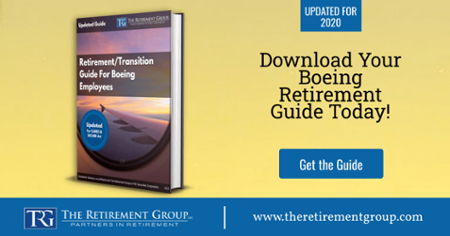As a recruiter my clients ask me all the time for tips on how to stay afloat while you’re in-between jobs. However, I’ve noticed people don’t often know what steps to take before they leave their current job. Here are a few suggestions of things to do before leaving Boeing.
1- Before you lose your job, open a line of credit at your bank or credit union. In addition, we advise you to open at least one credit card, or increase the credit limit on card(s) you already have. It is exceedingly hard to get a loan, get a line of credit or open a credit card after you lose your job. As you would expect, banks generally do not want to lend money to people who are unemployed and since you don’t know how long it may take to find your next job, nor what emergencies may come up in the future, it’s wise to consider a back up plan for how you can access cash if need be. Though subtle, it is really important and wise to do, so don’t discount it. You won’t realize it probably, but many of you have never had a low credit score, or NOT been able to get a credit card, or a loan. As many of you are used to earning money your whole life, it’s something you just would never even consider. When you are unemployed, your credit rating and ability to get credit will almost certainly take a hit.
2- Build your resume and skills list using Career Path. Once your resume is polished, get on LinkedIn to pursue opportunities and connect with employers, friends, or even old coworkers. In addition, there should be some helpful posts located in the T-Space “Surplus Support” group with information on ways do this more easily
3- Keep a journal and jot down any thoughts, information, or really just anything that you want to take note of. Journal keeping is a great way to deal with these times. Not only does it help keep track of crucial information, but it helps keep tabs on discussions you have with any superiors regarding your surplus activities, and impending layoff. When stressed, it’s just good to keep good, accurate notes, with dates and times of discussions and who the participants of those discussions are.
4- Ask why and resolve anything you’re uncertain about. I’ve spoken with numerous people involved in this situation and have encountered an alarming amount of people that are STILL wondering what the criteria was that dictated their removal from their position. Rather than letting this simmer in your mind, it’s smart and sometimes relieving to ask your supervisor or leadership team what the decision criteria was.
5- It’s also recommended to make a list of those around you whom you know are on the same boat as you. It is wise to remain in touch, support each other or just know who’s been cut. Get on Linkedin and connect with those close to you. You may feel upset or embarrassed, and your instinctive reaction may be to run away and hide. Confiding in positive-minded family, friends, former colleagues , and even career counselors and support groups can make a huge difference for you, and can help gain an alternative perspective on your situation. You are not alone. Many others in your company are in the same boat and they also want to discuss their frustrations.
6- Read and analyze all documents thoroughly. The ADEA sheets will list, by job title, the age of those in your universe, the population total of people in your universe with that title at that age, the number “selected” to participate in the surplus, and the number not selected. These documents convey how the universe maps by age and job title. When going through them, look out for anything that may be considered age discrimination. Typically, an excel file would be more helpful when sorting out this information.
7- Print out/download your entire corporate training history.
8- Print out/download your pay stubs.
9- Go through your Outlook and download any contacts you’d like to retain in your life – friends, colleagues, etc.
10- NETWORK, network, network. OR Linkedin , Linkedin, Linkedin. Whatever the source attempt to make as many connections as you can, and maintain your contacts – with peers, supervisors, vendors, etc. Despite your employment ending at Boeing, your relationship with everyone at Boeing doesn’t have to terminate as well. Some of these folks could play a huge role in helping you find your next endeavor.
Want to learn about the different stages of retirement? Visit: https://techstaffer.blog/2019/11/14/boeing-stages-of-retirement/
If you’d like to read about survivor benefits, visit: https://techstaffer.blog/2019/11/28/survivor-checklist-how-your-spouse-can-receive-boeing-benefits-after-your-death/
Wondering if you should work in retirement? Visit: https://techstaffer.blog/2019/12/05/life-after-boeing-should-i-work-in-retirement/
Sources:
The Retirement Group or www.theretirementgroup.com
“Retirement Plans-Benefits & Savings.” U.S. Department of Labor, 2019, www.dol.gov/general/topic/retirement.
“Generating Income That Will Last throughout Retirement.” Fidelity, 22 Jan. 2019, www.fidelity.com/viewpoints/retirement/income-that-can-last-lifetime.
BA Summary Plan Description, 2017




